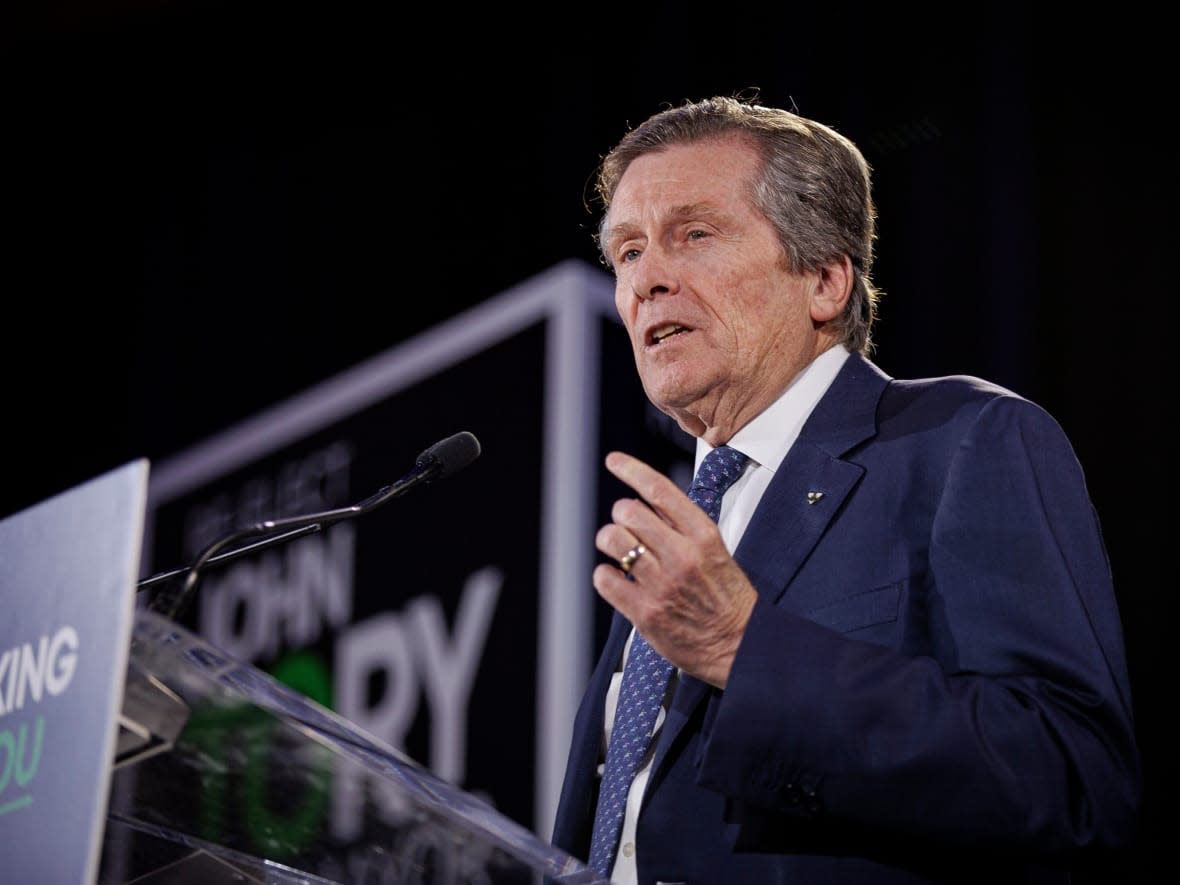John Tory says he'll use strong mayor powers to speed up housing development

Toronto Mayor John Tory is taking the first steps toward fulfilling one of his key campaign promises, pledging Wednesday to use his new strong mayor powers to create a city department to speed up housing construction.
Tory made the announcement at his first press conference after winning a third term in office, stressing the need to build housing in the city is so urgent that he has already mobilized city staff to create the new development and growth division.
"This is a fundamental change to City Hall and how our government has operated," he said. "And it is all to ensure that we cut through what has too often been an approval quagmire for people that are seeking to build housing and get new homes approved as quickly as possible."
During the mayoral election this fall, Tory introduced a five-point housing plan to create more affordable homes for people in the city. Part of that plan was a proposal to reorganize the city's bureaucracy to speed up development applications.
Tory said he would use the "strong mayor" powers given to him by the Ontario government specifically to reorganize staffing, if required, to get the department up and running as soon as possible.
The mayor said the department will ensure development applications move as efficiently as possible through the system while not sacrificing diligence.
"We're in a housing crisis in Canada, and that is being felt acutely here in the City of Toronto," he said. "We cannot shirk our responsibility as a city to get housing built, and we most certainly have to avoid making the situation worse."
The move comes a day after Premier Doug Ford announced a sweeping new plan of his own to get housing built across the province. He has set ambitious targets for municipalities to ensure that the province's overall target of building 1.5 million new homes in a decade is achieved.
"Our government will never ignore the many Ontario families who want a place to call home," Ford said in his speech, Tuesday.
"Everyone's dream is to have a little white picket fence. You know, when they put the key in the door, they know they're building equity into it, they can do the little tweaks to their house and increase the value of it. That's our goal. We won't let the ideology and politics stand in the way of doing what's right for all Ontarians."
Toronto will be expected to build 285,000 homes over the next 10 years and the provincial legislation, which has not yet been passed, would require cities to take a "pledge" to build the new homes. It's not yet clear what the pledge will mean or if failing to meet the targets will trigger penalties.
The province has said that one of the key pieces of the bill will be a freeze, reduction or exemption of development charges to incentivize builders. Tory warned that it's not immediately clear who will pay for that and the city can't afford to foot the bill on its own.
Development charges raise hundreds of millions of dollars for the city each year to build needed sewers, roads and other infrastructure to service new developments.
"It's just not fair to go out and change a piece of legislation and make a promise and sort of say, 'Well, it'll get paid for but (with) somebody else's money," Tory said.
It's also not immediately clear how the legislation will impact the city's heritage protections for historic buildings or the city's Green Standard Plan. Former city councillor Mike Layton said the province's plan could impede the city's ability to reach its climate change targets.
"Reports coming from city staff that (today's) provincial announcement MAY have inadvertently killed the Toronto Green standard for new buildings," he said on social media. "If this is true, the province just made it impossible for TO to get to net zero by 2040, 2050 or 2100. This needs to be fixed."
Ontario's Ministry of Municipal Affairs did not immediately respond to a request for comment.


